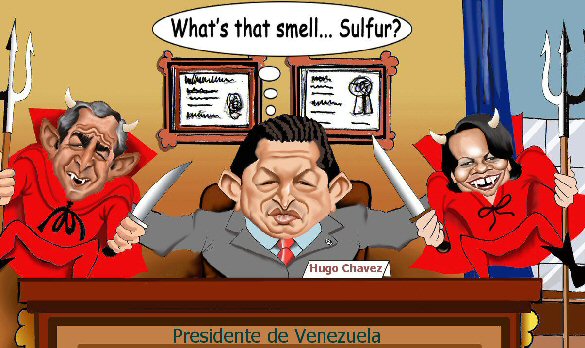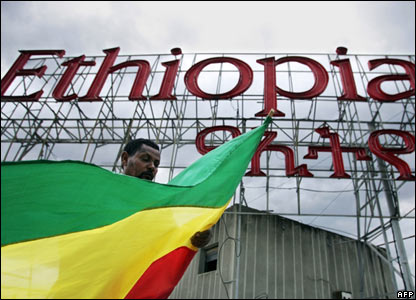The cost of war during a time of war is always a point of high contention. In America, we seemed to have entered into and nationally accepted a perpetual state of war. The so-called ‘war on terror’ has no foreseeable end, as does not any war declared on a thing or a concept. Terrorism, being a military tactic, cannot be conquered. The terrorist groups are not making threats directly to the American people, but rather we are relying on what the government says is the truth. Since we have already accepted this state of perpetual war, we will be kept in fear until the government says it’s OK to come outside again. This functions much in the same way that the cold war did, except the collapse of the USSR changed the social dynamic unexpectedly.
That being said, there is no exact quantifier or tag that you could put on the human cost of the Iraq war. Whether the war is a just one or not, it is probably still important to at least attempt to examine what the nation has spent.
The Human Cost
The Department of Defense puts out a daily release of American casualties in the Iraq war in the form of a pdf file (which can be downloaded by clicking the link).
The Iraq Body Count organization has a website which estimates the amount of Iraqi deaths as of the writing of this post to be at minimum 67,325. That’s a toll of reported deaths alone.

Link
The Iraq Coalition Casualties Count website has a detailed list of all the civilian casualties that have been reported by coalition forces (remember when we used to refer to them as ‘coalition forces’?). The same group has a weekly column called Casualty Trends which puts the entire American death toll at 3,607 dead and 26,695 wounded.
Nobody, however, agrees on the actual Iraqi body count.
In 2000, a team led by Les Roberts of Johns Hopkins School of Public Health used random sampling to calculate the death toll in the Congolese civil war at 1.7 million. This figure prompted immediate action by the U.N. Security Council. No one questioned the methodology.
In September 2004, Roberts led a similar team that researched death rates in Iraq before and after the 2003 invasion. Making “conservative assumptions,” the team concluded that “about 100,000 excess deaths” among men, women and children had occurred in 18 months. Most were directly attributable to the breakdown of the healthcare system prompted by the invasion. Violent deaths had soared twentyfold.
Unlike the respectful applause granted the Congolese study, this one, published in the prestigious British medical journal the Lancet, generated a firestorm of criticism. The outrage may have been prompted by the unsettling possibility that Iraq’s liberation had already caused a third as many Iraqi deaths as the reported 300,000 murdered by Saddam Hussein in his decades of tyranny. So shocking was this concept that liberals joined hawks in denouncing the study.
Some of the attacks were selfevidently absurd. British Prime Minister Tony Blair’s spokesman, for example, questioned the survey because it “appeared to be based on an extrapolation technique rather than a detailed body count,” as if Blair had never made a political decision based on a poll.
Some questioned whether the sample was distorted by unrepresentative hot spots such as Fallouja. In fact, the amazingly dedicated and courageous Iraqi doctors who actually gathered the data visited 33 “clusters” selected on an entirely random basis. In each of these clusters, the teams conducted interviews in 30 households, again selected on a rigorously random basis. As it happened, Fallouja was one of the clusters that came up in this process. Erring on the side of caution, they eliminated Fallouja from their sample. Strictly speaking, the team should have included the data from that embattled city in their final result — random is random after all — which would have given an overall post-invasion excess death figure of no less than 268,000.
From Refiguring the Iraq Body Count, a 2005 essay by Andrew Cockburn
In any case, it’s harder to find real facts about the human cost than anything else. And once you get past the human cost there is the emotional cost: tens upon thousands of scarred soldiers; emotional ties forever strained between America, Iraq and the rest of the middle east; a broken country in shambles.

Link
The Economics
This is the part that nobody wants to talk about, the pure economic side of the war. Of course there is division over this issue as well, so it’s probably best to look at several figures. It is also important to remember, as one New York Times article points out, that before the war the Pentagon had estimated the cost to be approximately $50 billion.
Democratic staff members in Congress largely agreed. Lawrence Lindsey, a White House economic adviser, was a bit more realistic, predicting that the cost could go as high as $200 billion, but President Bush fired him in part for saying so.
The article also speculates on what else could have been accomplished with $1.2 trillion, the eventual price tag that the author (through research) has placed on the war.
For starters, $1.2 trillion would pay for an unprecedented public health campaign — a doubling of cancer research funding, treatment for every American whose diabetes or heart disease is now going unmanaged and a global immunization campaign to save millions of children’s lives.
Combined, the cost of running those programs for a decade wouldn’t use up even half our money pot. So we could then turn to poverty and education, starting with universal preschool for every 3- and 4-year-old child across the country. The city of New Orleans could also receive a huge increase in reconstruction funds.
The final big chunk of the money could go to national security. The recommendations of the 9/11 Commission that have not been put in place — better baggage and cargo screening, stronger measures against nuclear proliferation — could be enacted. Financing for the war in Afghanistan could be increased to beat back the Taliban’s recent gains, and a peacekeeping force could put a stop to the genocide in Darfur.
What 1.2 Trillion Can Buy by David Leonhardt
I encourage all readers to check that out.
zFacts has a counter on the cost of the war, as does the National Priorities Project which both put the estimated cost at more than $400 billion and climbing steadily. I’m not going to go as far as to say that I can suggest what should have been done with the money instead, but I will give you a realistic evaluation.
In a country of less than 30 million people, $400 billion is equal to $13,793 per man woman and child that we have spent on waging war against the country. It might be a bit facetious considering those numbers alone for anyone to suggest that there existed no better and more diplomatic way to coax Saddam out of power.

Link





















